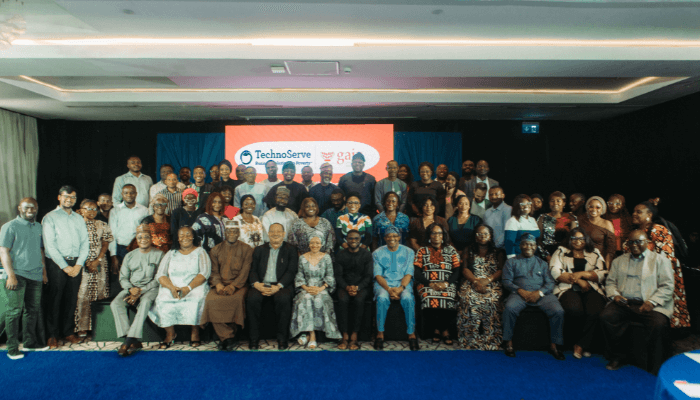DFQT+ platform boosts food traceability, compliance efficiency, stakeholders say
The Digital Fortification Quality Traceability Plus (DFQT+), a platform that attempts to address fortification issues, has become a game-changer for Nigeria’s food processing industry, boosting food traceability and compliance efficiency, according to stakeholders.
The stakeholders who spoke on Friday at the 2025 Digital Lab Workshop, organised by TechnoServe and the Global Alliance for Improved Nutrition (GAIN), lauded the DFQT+ platform initiative, saying it helps guarantee transparency and compliance.
Samson Rindap, quality assurance manager at Apple and Pears Ltd, said the platform has awakened awareness of fortification.
According to him, the platform has made producers take responsibility for their processes and increase compliance efficiency. “And also, it actually makes people take responsibility for their processes, from the receiving to the transformation and to the analysis,” he said.
“Everyone is always on the ground to ensure this process is entered,” he noted.
He explained that the digital platform has streamlined interactions between edible oil industry producers and regulatory agencies, aiding in issue resolution. However, he also noted that further improvements are necessary to achieve a completely seamless digital process.
Ikechukwu Uche, laboratory manager at PZ Wilmar, said that the DFQT+ platform has provided real-time results of fortification. “The management can always view the results in real-time, anytime they want to view them. It has also lessened the stress for us,” he said.
The DFQT+ platform was designed with input from relevant stakeholders – regulatory agencies, edible oil producers, and national technical advisory groups and launched in April 2024.
The platform has leveraged digital tools to increase transparency and traceability and has profiles of participating stakeholders while sharing their live fortification data.
Speaking on how the platform is supporting regulators, Terdoo Anom, assistant chief standard engineer at the Standards Organisation of Nigeria (SON), said the regulatory agency was one of the early adopters of the digital platform owing to the promise in it to address issues of non-compliance and quality assurance.
“It was difficult to trace non-compliance of produce when we got it out from the lab. The DFQT+ platform has traceability from producers, importers to the end user. We’re able to, from the food chain, trace where non-compliance comes up from,” Anom said. He urged more edible oil producers to onboard on the digital platform.
Also, Tijanni Abiola, assistant chief regulatory officer, National Agency for Food and Drug Administration and Control (NAFDAC), said the platform has helped in ensuring better reliability and improving relationships between various regulatory agencies.
“The platform has really helped in ensuring better reliability and improving confidence between the agencies, since they, the regulator, can share real-time data on the platform, so it pays for us to do the verification compliance monitoring effectively, just sitting down at our office,” he said.
Ayodele Tella, LSFF portfolio lead, TechnoServe said that her organisation, TechnoServe in collaboration with GAIN is building a system that works, is sustainable and will eventually be owned by the country. Referring to the DFQT+ platform, she says they are looking forward to Nigeria holding it as part of the sustainable process for driving fortification compliance.
“We want to assure you that we are definitely committed to leveraging technology to scale our collective impact and ensure that every individual benefits from the promise of a properly fortified food, which is the aim of the federal government and institutes.”
In her welcome remarks, Ladidi Bako-Aiyegbusi, director of nutrition at the Federal Ministry of Health in Nigeria (FMOH), appreciated TechnoServe and GAIN for the digital platform, noting it reaffirms the shared commitment to improve the social well-being of Nigerians.
Bako-Aiyegbusi, who was represented by Maria Odey, senior medical officer, FMOH- Southwest, explained that the country started its large-scale food fortification in 1992 with salt and has expanded to other food vehicles like edible oil, flour and all in the mix to address micro-nutrient deficiencies at the population level.
She added that the federal government has partnered with the development partners because it encourages a multi-sectoral approach and innovative platforms to address public health issues.

